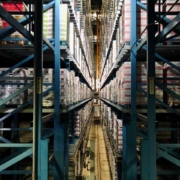What is supply chain performance management?
The developments within supply chains ensure that performance management outgrows its traditional financial role.
Performance management
Performance Management can be defined as a set of processes, often supported by information technology, that improve management, strategy execution and decision making in organizations. Performance management plays a key role in change processes and is the basis for continuous improvement programs.
To realize the maximum benefits of performance management, companies need to integrate their processes, including financial planning and budgeting, project and program management, people management and rewards, performance reporting, risk management as well as supply chain business intelligence and analysis. In this way, Performance management is outgrowing its traditional role, mainly focusing on financial indicators.
Performance in the supply chain.
In order to meet the increasing demands of customers, competition and legislation, it is necessary for companies to gain insight into their entire supply chain. Not only our own local warehouse and distribution, but also the production and supply chain facilities in remote countries such as the Far East. Large differences in culture, legislation, but also the often inadequate organizational maturity of the local players, is a serious obstacle.
Performance management provides the tools needed to gain insight into the performance of the entire supply chain. It offers the basic functions: Objective formulation, control and planning, communication and improvement drivers. When setting up the system, the entire supply chain must be considered and based on the business strategy and its value drivers, which are based on maximum value added for the end customer.
Supply chain performance management.
The development of supply chain performance management is reflected in the setting up of supply chain towers where the performance of the entire supply chain is centrally monitored and controlled. The Tower functions as a conductor for the entire chain and as such has a strategic role in the organization.
Towers are multifunctional and cross-organized. The collection, analysis, prediction and distribution of the information is done chain-wide to all partners involved. As a result, control towers have a strategic, tactical and operational role. The Tower generate information that is important about the strategic structure of the chain, they provide information about the performance of the chain and provide real-time information that is important for stock management, for example.
The advantage of Supply Chain Performance management is that it ensures focus on customer needs and changes in demand. Ensures better alignment between customer requirements and product development [innovation] By applying performance management, an organization will be able to reduce the total lead time, available stocks and financial risks.
Other sources :
http://addvise.net/supply-chain-towers/









